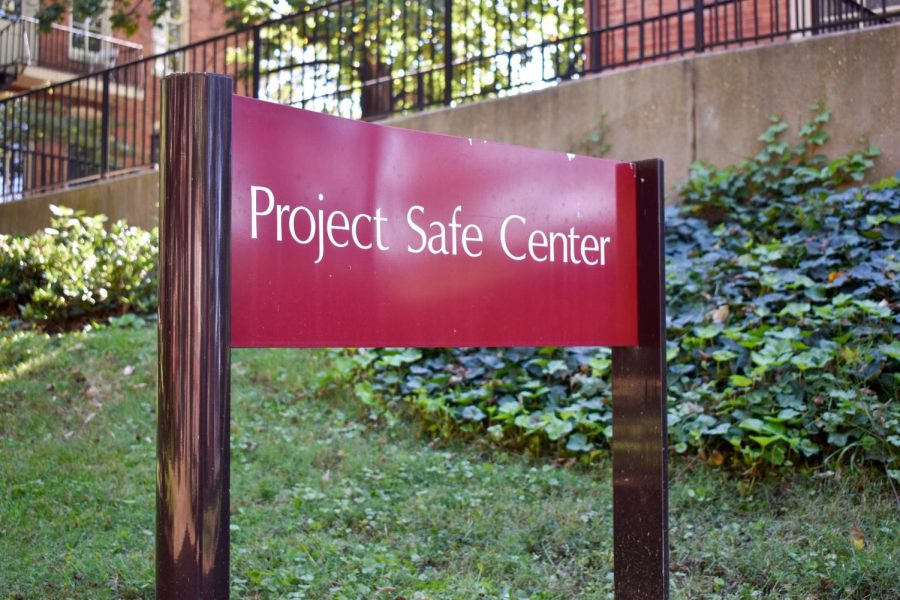With universities around the country continuing to fight sexual misconduct and decrease the stigma surrounding reporting, Title IX and its role on college campuses is at the forefront of national attention. Under the guidance of President Obama’s 2011 Dear Colleague Letter, colleges were reminded of their duties to uphold a number of longstanding Title IX requirements in their investigative practices. The current administration rolled back the letter in 2017, and earlier this month introduced proposed regulations focusing on requirements of schools regarding reporting and investigating sexual assault accusations, sparking controversy about whether the rules benefit the victims or the schools.
Secretary of Education Betsy DeVos released her department’s potential changes to Title IX, the federal law which prohibits sex based discrimination in education programs that receive federal financial assistance, earlier this month. While the administration references the changes as student-oriented, many critics have said these changes bolster support for those accused of sexual assault and reduce a college’s responsibility to investigate the matter. This official proposal comes a month after the New York Times released an unofficial draft of the regulations, which were consistent with the changes DeVos announced on Nov. 16.
Broadly, the proposed regulations define what constitutes sexual harassment or assault and what triggers a school’s legal obligation to respond. The changes define sexual harassment as “unwelcome conduct on the basis of sex that is so severe, pervasive and objectively offensive that it denies a person access to the school’s education program or activity.” This is a more specific definition than the Obama-era guidelines, which defined it as “unwelcome conduct of a sexual nature.”
This narrowed definition may discourage people who have experienced harassment on campus to come forward, Director of Project Safe Cara Tuttle Bell said.
“We’ve been really working very hard in the past five years in particular to get people to connect early and often and not try to place their experience on some sort of hierarchy, but to realize that there are things that Project Safe and the Title IX office and the university at large can do and want to do to help them, regardless of whether their experience has a particular definition or not,” she said.
In response to DeVos’ announcement, Dean of Students Mark Bandas and Provost Susan Wente sent an email to the Vanderbilt community, emphasizing the university’s continued commitment to investigating sexual harassment accusations.
However, the university has not taken an official position on the proposed changes. A New York Times opinion piece published Nov. 27, cited Vanderbilt as one of many universities that spent thousands of dollars lobbying the DeVos Department of Education for “friendlier regulations, including on Title IX.” Referenced in the New York Times piece is a House of Representatives lobbying report from July, which describes the lobbying activity as “general issues around regulatory reform including potential Title IX regulations from the Dept. of Education” and mentions Vanderbilt’s lobbying around the PROSPER Act.
Vanderbilt representatives said that the article’s characterization of the university’s lobbying efforts is incorrect and misleading. The university has asked The New York Times to issue a correction.
“The lobbying report mentioned in the opinion piece contains only general descriptions of activity regarding ‘general issues around expected Title IX regulation,’ so it is unclear how the author of the piece came to the conclusion that Vanderbilt lobbied for friendlier regulations on Title IX. This did not occur and is a false characterization of those lobbying efforts,” a Vanderbilt representative said.
We are examining the proposed regulations to determine their implications. The regulations are not yet final.
The representative said Vanderbilt opposed the PROSPER Act, and Chancellor Nicholas Zeppos publicly wrote a letter to the Tennessee congressional delegation urging them to vote against its passage. The bill contains adjustments to Title IX, such as allowing police conducting a criminal inquiry to request that campuses halt their sexual assault investigations, and allowing campuses flexibility in setting evidentiary standards. Zeppos opposed the legislation due to the way it would restructure federal student aid and make higher education less affordable.
“To date, our work with respect to Title IX regulations has focused on preparing for the anticipated release of the regulations (released Nov. 16), including internal discussions and ongoing conversations with congressional offices to discuss Vanderbilt’s current Title IX policies,” the representative said. “We have not advocated for a ‘friendlier’ policy.”
It has yet to be seen what exactly these regulations will look like on Vanderbilt’s campus. When The Hustler reached out to Molly Zlock, Director of the Title IX Office, a university representative responded, saying the school is still determining how the regulations will affect campus.
“We are examining the proposed regulations to determine their implications. The regulations are not yet final. We will carefully consider them and the impact on our students as well as the fairness of the overall process,” the response stated. “We do not tolerate sexual misconduct on our campus. We currently have a robust process for investigating sexual misconduct reports and strive to protect the well-being and safety of our community members and respect the rights of everyone involved.”
How Vanderbilt will specifically respond to any passed regulations will involve conversations among large swaths of the administration, including, but not limited to Wente, Bandas, Chancellor Nicholas Zeppos, the Office of Risk Management, the Director of Accountability, the Title IX Office, the Equal Opportunities Office and Project Safe, Tuttle Bell said. Additionally, the Provost’s Sexual Misconduct Prevention Committee, founded in 2009, is charged annually with reviewing and recommending Vanderbilt’s campus safety policies surrounding issues of sexual misconduct and intimate partner violence. These groups will try to “minimize any negative impact” when the final rules are released.
Tuttle Bell said that, after years of progress and strengthened activism around the issue of sexual assault, attributable to the #MeToo movement and initiatives like Joe Biden’s “It’s On Us” campaign, these regulations appear as a possible step back.
“A lot of people felt like, finally, we’re taking this issue very seriously, and it’s become a higher priority,” she said. “A message like this, which is a change, feels like they’re saying that the previous perspective and focus had gone too far. I know that some students are feeling like the message that they are saying is we don’t feel believed, or others have told us that they feel like these proposed regulations, the message is that they don’t think what has happened to them is that bad. That’s heartbreaking.”
Under DeVos’s proposed regulations, campuses will likely have flexibility in setting their evidentiary standards. Should the proposal become law, campuses would be able to choose whether they abide by the “preponderance of evidence” standard outlined in President Obama’s 2011 Dear Colleague letter or if they want to use the “clear and convincing” standard of evidence.
A message like this, which is a change, feels like they’re saying that the previous perspective and focus had gone too far.
In response to the Obama-era’s lowered level of evidence needed for schools to take action against students accused of sexual assault, many accused students then sued their universities. Some young men argued their Title IX and due process rights had been violated during investigative procedures due to the low standard of evidence and alleged gender based biases. According to Tuttle Bell, the proposed changes to Title IX are significant, and likely come as a response to activism regarding due process in investigating the accused.
In addition to redefining sexual assault and allowing flexibility in evidentiary standards, proposed modifications include only requiring schools to investigate incidents that occurred as part of campus programming and were correctly reported to the university. This may mean that schools are not required to investigate incidents of misconduct that occur of campus, though it doesn’t preclude them from conducting those investigations should they be inclined. Proper reporting requires informing “an official with authority to take corrective action.” Tuttle Bell said this change would likely allow schools to reduce who is considered mandatory reporters, but the effects of this particular clause are still unclear.
The changes would also include requiring live hearings, in which the accused perpetrator and their team can cross-examine accusers. The proposed rules allow for, under certain circumstances during a cross examination of the victim, consideration of evidence concerning the victim’s sexual history. The cross-examination clause stands out as the most notable change to Tuttle Bell.
“I am very worried about that. We know that cross examination of a victim by their alleged perpetrator will have a chilling if not silencing effect,” Tuttle Bell said. “It is asking an awful lot of a survivor to face questioning by the person that has harmed them, when the questions will likely be designed to raise doubt and assign some responsibility to the person who’s been harmed. That would be very harmful. It would likely be re-traumatizing.”
Max Schulman contributed to this report.












